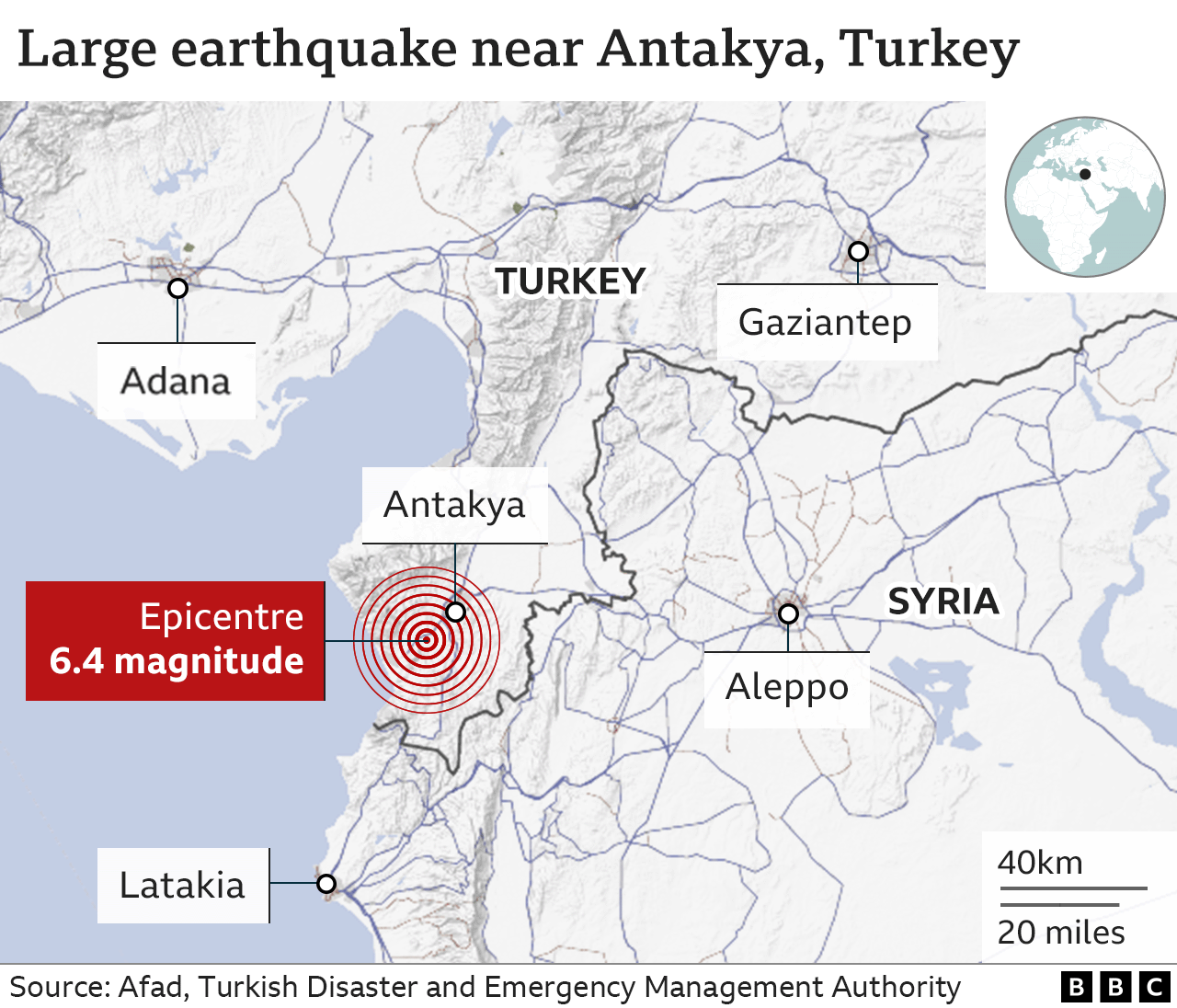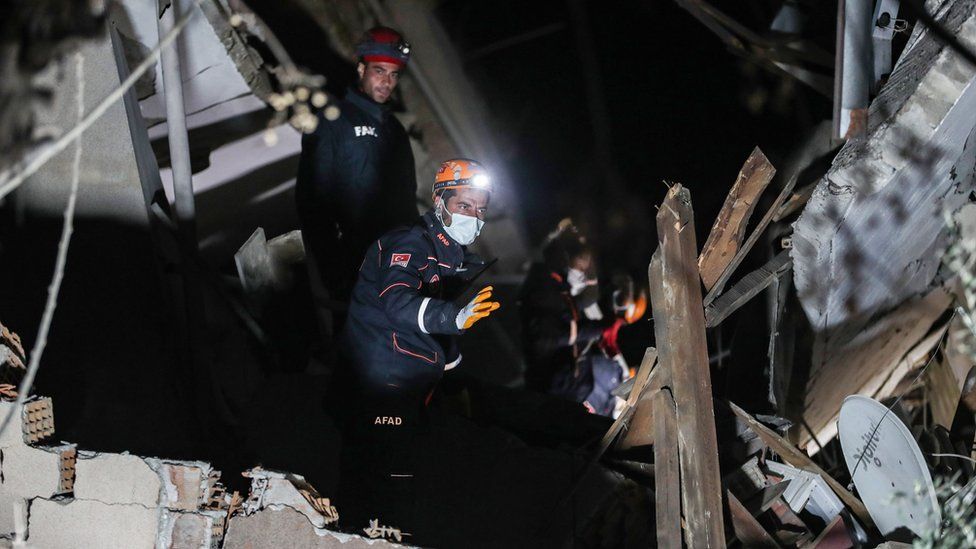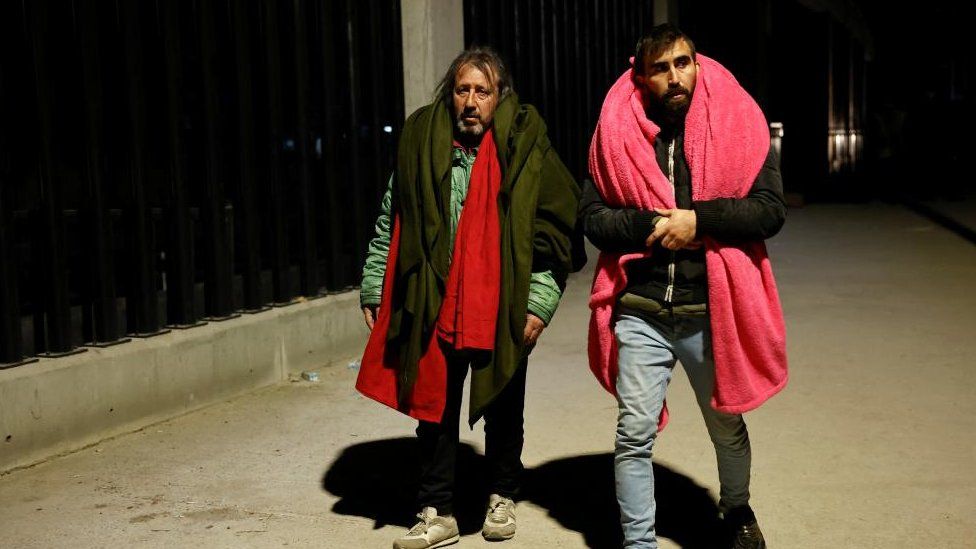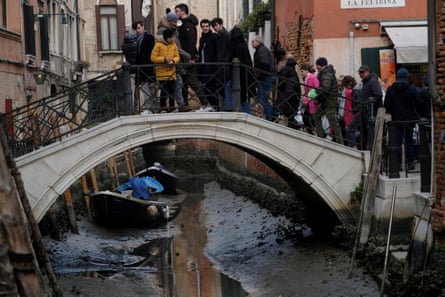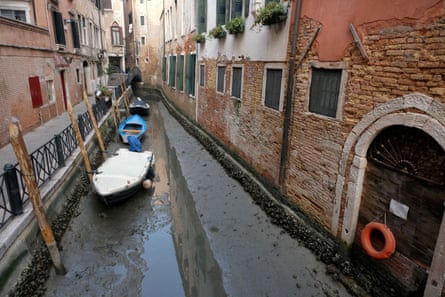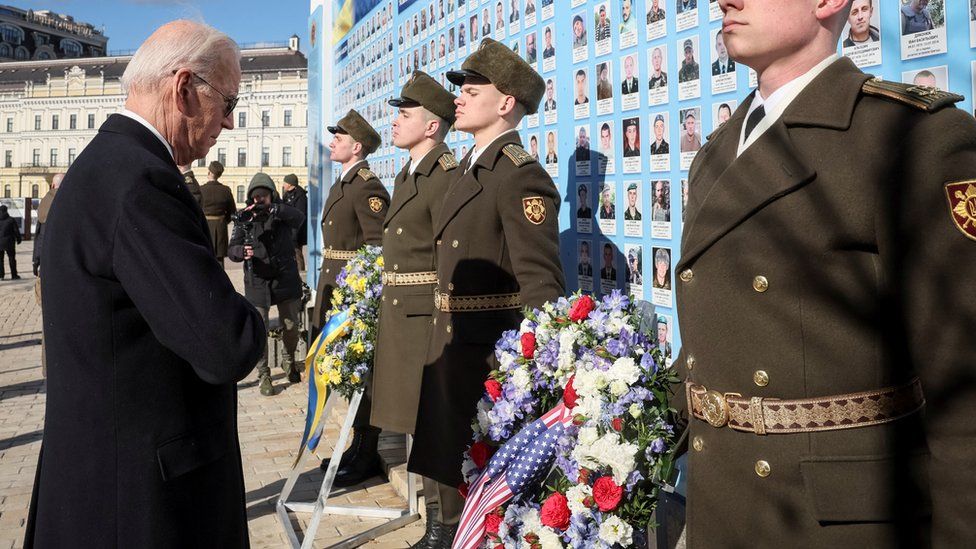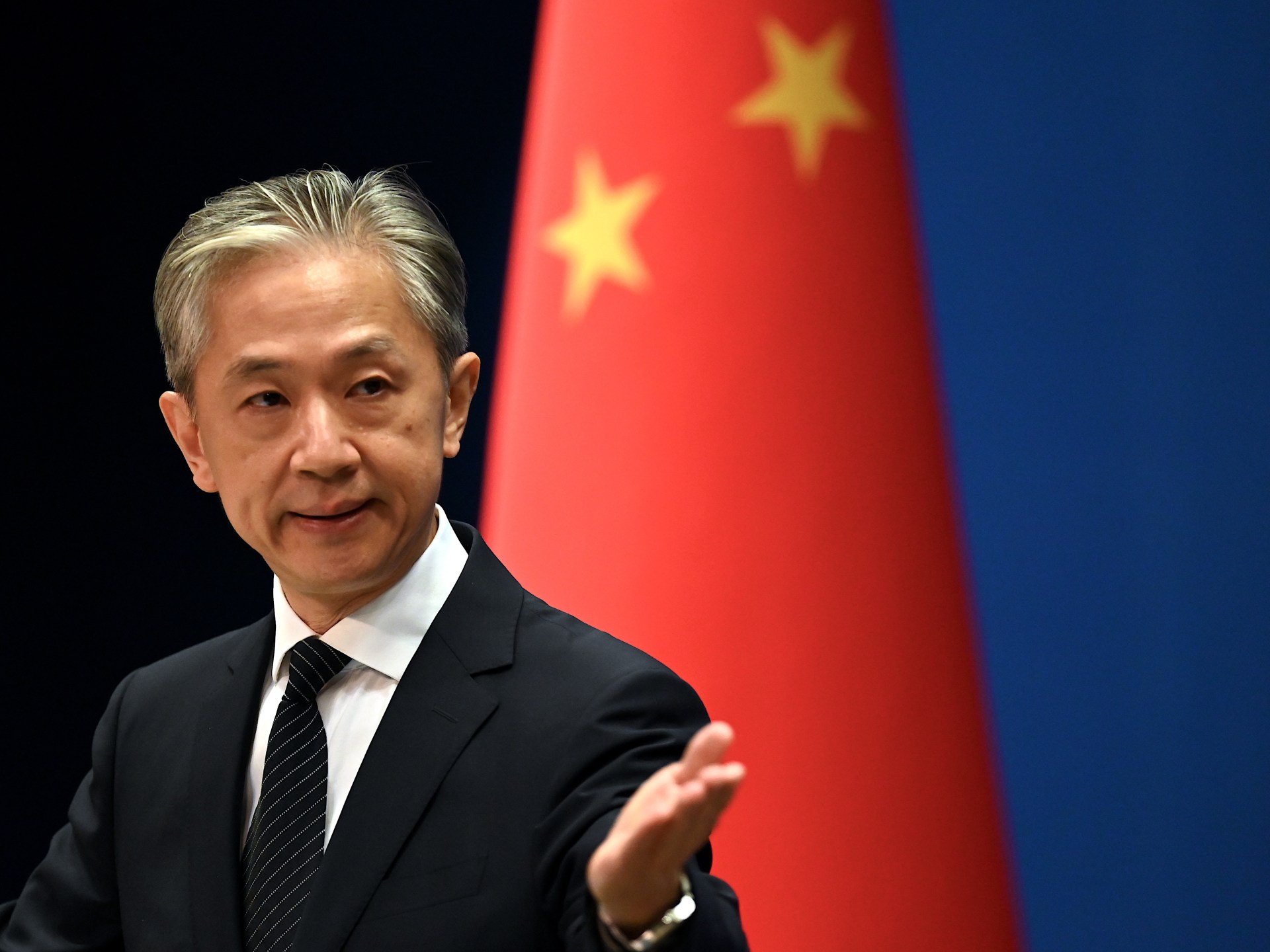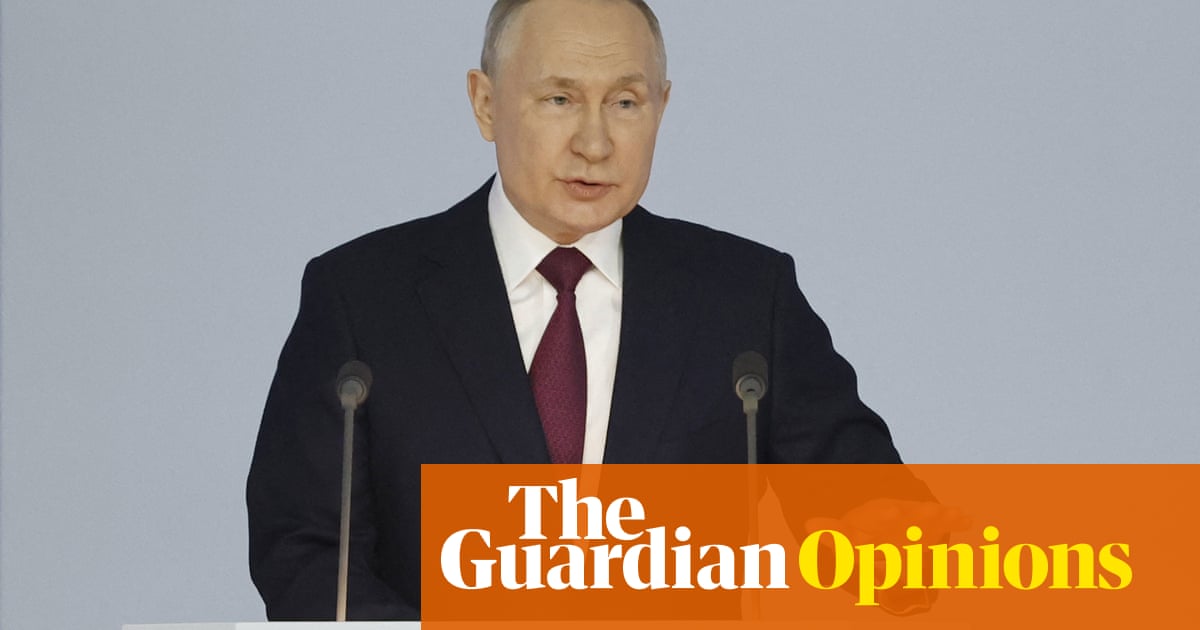
There was perhaps only one truth spoken during Vladimir Putin’s two-hour state of the nation address: that Russia would suspend its participation in the New Start treaty with the US. The rest was yet another a trip down the rabbit hole into the Russian president’s parallel universe.
Those who were anticipating a major revelation in a speech that had been postponed from December were disappointed. In the absence of any groundbreaking advances on the military front, many expected Putin to finally admit that Russia was at war in Ukraine. But no, the “special military operation” is ploughing on “step by step”. Not only did he fail to offer any reassurance to those who dared hope he was considering making some concessions to the truth that the operation is not going well, but he also left the radical pro-war faction hungry for a more aggressive approach.
The president stayed within well-trodden terrain: the war was started by the west, and Russia needs to protect itself from the war-mongering decadent west that opened the door to nazism in the 1930s and where today pedophilia is the norm and God is gender neutral. He promised financial benefits to war widows and the wounded, and praised the Russian economy’s robust performance under sanctions, in a country where automobile production is down 67% year on year and biometric passports can no longer be issued because of the lack of chips. He praised the dramatic drop in unemployment while businesses are suffering from a dire lack of human resources due to the twin blows of mobilisation and exile.
Then, at the end of the speech, while some members of the audience were visibly struggling to stay awake, he delivered the punchline: Russia is suspending its participation in the New Start treaty, the only remaining arms control agreement between the US and Russia. It limits the number of nuclear warheads each side is allowed to have, and provides for bilateral inspections of each other’s nuclear facilities.
While this sounds dramatic, it only formalises a situation that has been playing out between the two nuclear superpowers since the end of 2022, when Russia cancelled a meeting with the US to discuss the revival of mutual inspections that had stopped since Covid. The official closure of the main forum for dialogue on nuclear weapons is regrettable, and increases the chances of a new nuclear arms race – but at least all sides know clearly where they stand.
Putin continues to make veiled nuclear threats, and did so again in this address when he stated that western declarations on ensuring a strategic defeat for Russia were an existential threat “to which we know how to react”. Threats to the existence of the Russian state allow for a first-use nuclear strike in Russia’s military doctrine.
Each time Putin makes these threats, the aim is clear: frighten western public opinion into pressuring governments to stop arming Ukraine and force Zelenskiy to the negotiating table.
It is impossible to know whether Putin will carry out his threats. But one thing is knowable: it is impossible to negotiate with someone who uses lies and blackmail to force his opponent’s hand, because nothing he says can be trusted. In his speech, Putin mentioned his efforts to bring the west to the negotiating table in late 2021 by the publication of two so-called security treaties – one between Russia and the US, and one between Russia and Nato. These were in fact ultimatums, insisting that Nato withdrew to its 1997 borders.
Beyond the fact that Putin knew from the outset that these conditions were not acceptable to the US or to Nato, when one discusses a treaty the presumption is that both parties were involved in negotiating it, and both parties actually knew that a treaty was being drafted. By framing his 2021 ultimatum as a fake treaty (that he knew was untenable), Putin is in fact engaging in a sophisticated disinformation campaign. It laid the ground for his relentless attempts to recast the war in Ukraine as a war with Nato – which is now the main reason why the Russian population is not rising up against the war as the body bags start to come home.
Although today’s address by Putin lacked the drama of his address to his security council last year, during which he recognised the independence of the Donestk and Luhansk republics and publicly humiliated his foreign intelligence chief, it is no less dramatic in what it portends. Putin has cemented Russia’s withdrawal from the international order – and the imprisonment of more than 140 million Russians in an empire built on lies and bloodshed.
Samantha de Bendern is an associate fellow in the Russia and Eurasia Programme at Chatham House and a political commentator on LCI television in France
Do you have an opinion on the issues raised in this article? If you would like to submit a response of up to 300 words by email to be considered for publication in our letters section, please click here.
https://news.google.com/rss/articles/CBMigwFodHRwczovL3d3dy50aGVndWFyZGlhbi5jb20vY29tbWVudGlzZnJlZS8yMDIzL2ZlYi8yMS9wdXRpbi1taWxpdGFyeS1mYWlsdXJlLWRlZXAtZGVsdXNpb24tZHJhZ2dpbmctcnVzc2lhbi1wZW9wbGUtbmV3LXN0YXJ0LXRyZWF0edIBAA?oc=5
2023-02-21 16:55:00Z
1793776242
